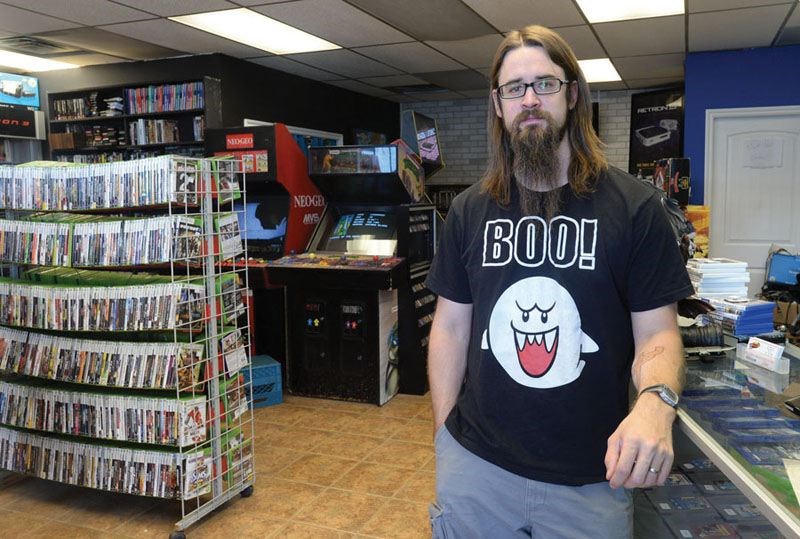A bylaw aimed at combating theft has had an unintended negative effect on a downtown small business.
Game Quest sells second-hand video games and sometimes hosts tournaments in the evening, but because it sells second-hand goods, it has to follow the city of Prince George's second-hand dealers and pawnbroker bylaw.
The bylaw requires the store to record the address and identification of anyone who sells them a game, record any serial numbers and keep anything purchased in storage for 30 days before it can be sold. The store can also only buy or sell between the hours of 8 a.m. and 8 p.m. - even if it's done online.
"The bylaw exists to protect business owners against receiving stolen property as well as protecting the people in the community - to let them be assured that, if their homes get broken into, anything of value can be tracked if it's taken into a second-hand shop, pawn shop, businesses like that," said Fred Crittenden, the city's bylaw services manager.
Kelsy Polnik, the store's owner, said since he's learned his store has to follow the bylaw, there's been a negative effect on his business. The biggest problem for him is storing items for 30 days.
"My store is very small because we're a brand-new business," he said, "so I don't have a lot of storage room in the store, so I got an exemption to take things to my house. Now we've got 120 boxes stacked in my spare room and living room just taking up space waiting for 30 days to be up."
Having to store the items keeps $10,000 to $25,000 worth of inventory in limbo, which has caused Polnik to burn through any savings he had and dip into lines of credit.
"Before we were informed of this bylaw, we were hoping to move to a bigger store, about three or four times as big, and expand what we're doing," he said. "We were on track to do that until we started to adhere to this bylaw and now we're talking about staying in the same place or even downsizing."
In the worst case, closing down for good is a possibility, he added.
The time limit on sales also makes it impossible to sell items during one of the store's tournaments, which can last until 11 p.m. It also makes it impossible for Polnik to buy more stock online outside of store hours.
Prince George isn't the only city that has second-hand video game sales come under their pawnshop bylaws. Both Kelowna and Nanaimo have similar bylaws with similar restrictions. Bylaw managers in both cities said they haven't faced a similar situation with second-hand video game stores like Game Quest's.
Nor is Game Quest the only store that could be affected by the bylaw. Crittenden said the city was looking to see if the bylaw affects other places that sell second-hand video games, such as big box stores like EB Games and Future Shop, as well as the second-hand store run by non-profits like the Salvation Army.
Rob Mayne, the city of Kelowna's corporate and protective services director, said that in his city, the bylaw did apply to the big box stores, which led to them not dealing with second-hand video games.
Polnik said he'd like to see the bylaw change so that the 30-day storage period is reduced, eliminated, or waived for video games. He'd also like to see the time and online purchasing restrictions removed.
"Changes to the bylaw - that would be entirely up to council," Crittenden said, who added that he'd suggest that Polnik make a presentation to council. Polnik said on Facebook he is planning to do just that. He's also asking people to sign a petition asking for change - over a period of five days, 350 have signed.



